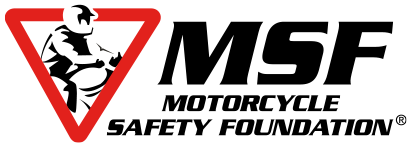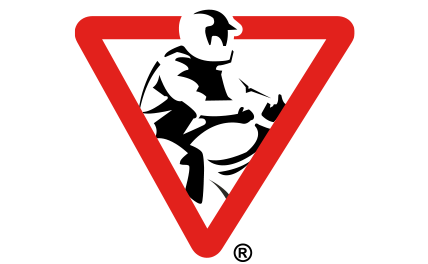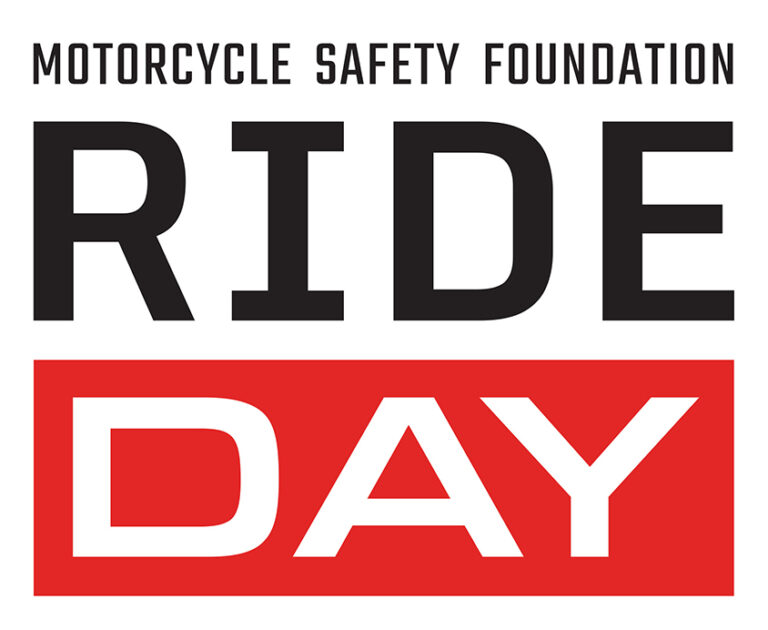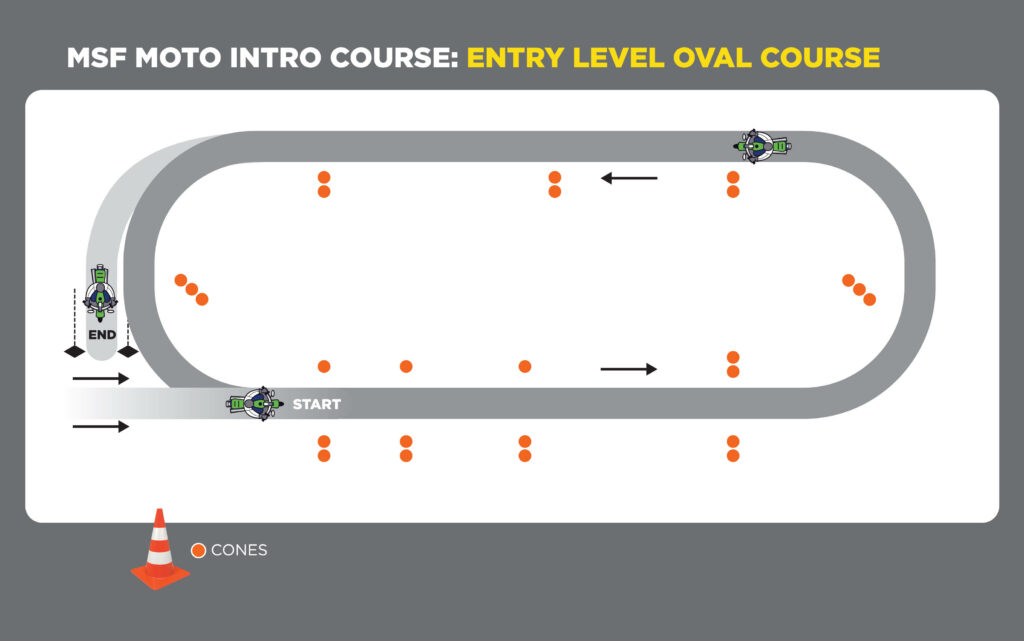MOTO Intro
- A first-ride experience in 30 minutes or less
- Minimum range size of 80×100
- Motorcycle, helmet, gloves, range and coach provided
- Coach to participant ratio: 1 to 1
FAQs
A free, 30-minute, event giving those curious about riding, a first-ride experience in a controlled, low-risk, and positive environment.
The overall aim is to have participants briefly experience their first motorcycle ride under the guidance of a MSF-certified coach. The MOTO Intro is a “First Experience” and exposure to proper rider training, not a learn-to-ride course.
Anyone curious about motorcycling with little to no experience.
- Free!
- A non-pressured, non-hassle, supportive environment to try motorcycling.
- Encouraging, positive and compassionate interaction with training professionals.
- Everything is supplied: Motorcycle, Gear, Coaches.
These are intended as a FREE event for participants.
A session is about 30 minutes.
Session includes registration/waiver, gear-up, introduction and instruction, a riding experience, gear-down, and next steps.
Each event utilizes a set-up area for registration, a range, a gear-up and down area, and next steps area.
Depending upon Site/Sponsor preference, the event may be three-to-five hours, or all day.
A training motorcycle is recommended for use. Look for
- good size, seat-height, and weight for newcomer participants
- to allow participants to support the weight of the motorcycle
- passing of a Coach T-CLOCS inspection
Not for MOTO Intro
Different motorcycle types may be used, such as 3-wheel or 2-wheel. However, motorcycle types should not be mixed within a single session. Separate sessions for 3-wheel-only motorcycles may be conducted at any time.
Similar to a BRC and DBS, range management and coaching/tutoring principles apply. However, little or no front-loading of controls, directions, or evaluation points occur.
MOTO Intro models DBS Ex #03 Action Step #04 for delivery, then quickly moves to Ex. #06. We introduce and instruct basic hand controls, then immediate application.
Unlike BRC or DBS, MOTO Intro does not address foot controls, sequences of procedures, or most coach signals.
A one-to-one ratio for introduction and instruction. Once participants begin riding, coaches typically move to manage path-of-travel.
For a one-to-one ratio, one coach per motorcycle/participant.
It is recommended to have at least four to manage corners as participants begin riding. Best practice is at least one additional coach beyond participant maximum.
Dependent upon the size of the MOTO Intro layout and design. Recommended session size is four to six participants or fewer.
Dependent upon the size of the MOTO Intro layout and design. There may be room for only one platform, while other sites may be able to establish two on opposite ends of a training range.
The platform is similar in layout to BRC Ex.#03, however can be smaller in size.
No. There is no knowledge or skill testing for this first experience.
When established, a checklist and assessment form will be implemented.
Yes. The recommended minimum age requirement is 16 or older. Under 18 requires parent/guardian formal approval in writing.
Yes. Adequate insurance must be provided to protect all parties involved. Sites/Sponsors should consider comprehensive, collision, medical (personal injury protection), and general liability, to exceed minimums required by the state and MSF. Program entities, participants, Coaches, and equipment must be adequately insured.
Ranges that use MSF insurance can contact Laurie Brehm at LBrehm@MSF-USA.org for insurance options and information. If you use another insurer, contact them directly about special event coverage.
No. Not for a first ride participant experience.
Yes. Protective gear must include a DOT-compliant helmet, eye protection, long-sleeved shirt or jacket, and long pants, full-fingered gloves, and over-the-ankle footwear.
There is no special or unique approval process. MOTO Intros are events conducted only at MSF-approved ranges.
By design, no painting is needed. Layout and cone placement can be paced-off to fitting and suitable dimensions allowing for an oval design, with multiple start/stop points, run-off, and staging area.
Yes. Cones and signage to identify registration area, MOTO Intro area, and SKILLS Check area. Paperwork: Incident Reports and Waivers (General Release & Indemnification, and Covid). Protective Equipment: DOT-compliant helmets, and a recommended selection of loaner footwear, gloves, and eye-protection.
QR Code to allow for online registration and waiver completion (participants over 18)
Typically standard 2″ or 3″ cones are used for start/stop points. Some points may work better if using two or three cones to mark the visual cue, such as end turn points.
Larger traffic cones may be needed to separate areas.
Sites/Sponsors can request support anytime. Support can include marketing materials and collateral, conference/video calls to discuss event needs and best practices, and possibly personnel to help with initial launch.
This is for the state/site/sponsor to decide and provide. Suggestions include a pin, magnet, completion sticker, “next step” info, discount coupon for a class, or other promotions to cultivate excitement.
COACH
Successful MOTO Intro Coaches are:
- compassionate, considerate, and have a sensitive social approach
- balanced in humility, confidence, and resolve
- sincere and empathetic in their desire to help others
- calm and courteous, and enthusiastically provide encouragement
- inspiring, reassuring, patiently professional and polite
- compassionate in giving direction and timely tips
- creative and patient while engaging to motivate and reassure
- able to meet riders where they are (emotionally and physically) without pressure of a “pass vs fail activity” mindset
- able to demonstrate strong interpersonal skills: verbally helpful, tolerant, with active listening skills to be a patient help-agent
Yes. Like other MSF programs, the same principles of SAM (Safety and risk management, Adult/Accelerated learning, and Motor skills development) are honored.
The layout is of similar pattern to BRC Exercise #03.
Coaches often assume they must conduct all of BRC Exercise #02 and #03. However, the MOTO INTRO experience, by design, does not address many of these controls or processes.
Not at this time.
Presenting a MOTO Intro
Coach MOTO Intro

Instructional Materials:
Top of Mind Considerations
- Be a welcoming, personable, friendly, and responsive coach
- Understand that participants may have had past experience(s) that were challenging or discourteous
- PATIENCE! PERSISTENCE! CALM-TUTORING! TOLERANCE!
Rider Management Tips
- Less “is” more. Use fewer, better words.
- Do not say “PULL” (brake or clutch) as riders often pull on bar.
- Terminology impacts understanding and performance:
- Clutch “EEEEEAAAAAZE” to friction point
- Throttle “ROLL-ON” / “ROLL-OFF” “Roll-On to GO/Roll-Off to SLOW”
- Brake “SQUEEEEEZE” Squeeze-in fingers: 1, 2, 3, 4 (vs grab) “PUT BRAKE AWAY” When not in use.
- Never run in front of rider or try to “catch” them
- “SQUEEZE the Clutch!” if uncomfortable/out-of-control
- BRAKE: a smooth “SQUEEEEEZE” then “Put Brake Away”
- Tutor ‘lessons of opportunity’: Too much front load of techniques/strategies hinders experience.
- No details of shifting, posture, or countersteer
- Pull them out of path of travel if you need to talk to them
- At end of session, stop riders in straight line
- Coaches shut off bike. Ask riders to squeeze brake and dismount
- Coaches then move bike to start point ensuring in neutral



